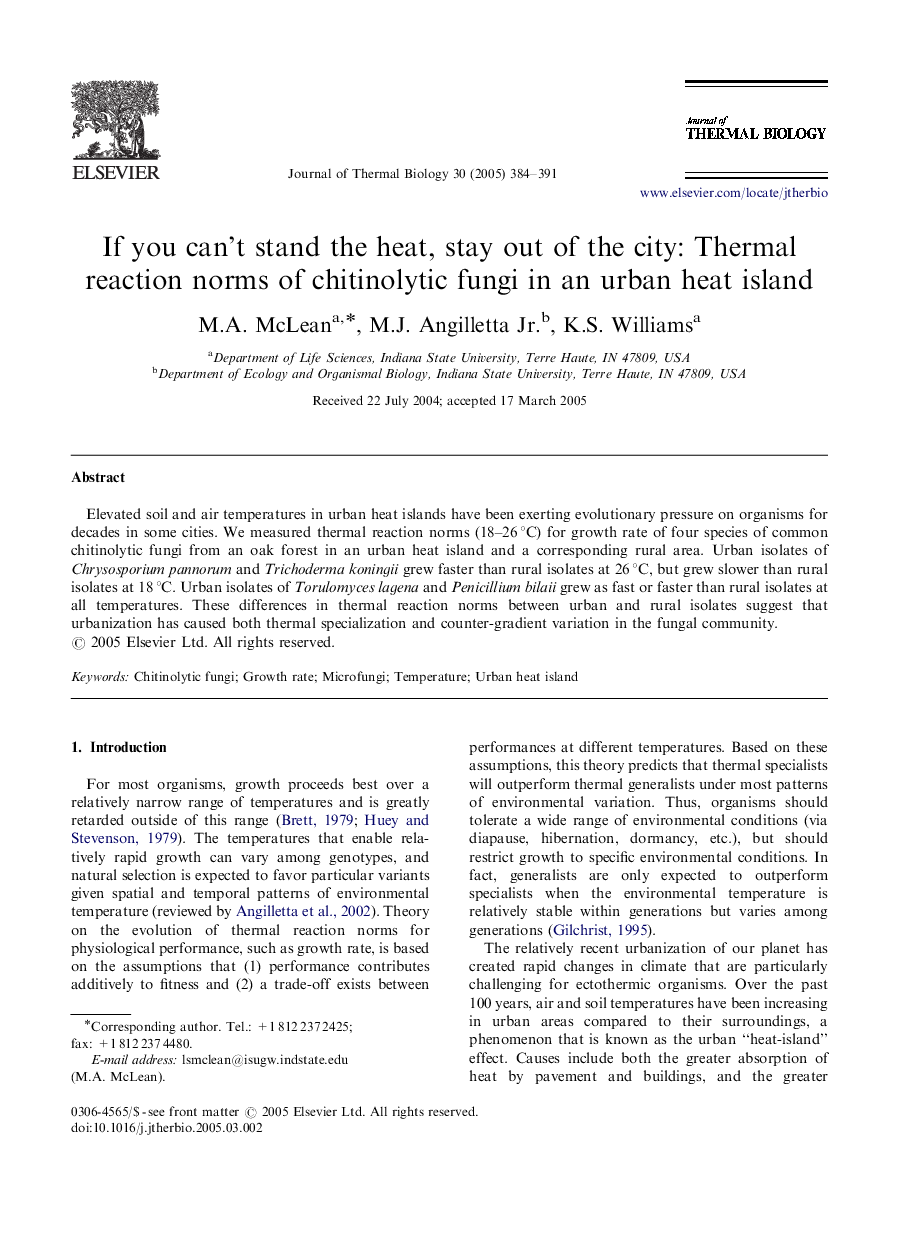| Article ID | Journal | Published Year | Pages | File Type |
|---|---|---|---|---|
| 9148998 | Journal of Thermal Biology | 2005 | 8 Pages |
Abstract
Elevated soil and air temperatures in urban heat islands have been exerting evolutionary pressure on organisms for decades in some cities. We measured thermal reaction norms (18-26 °C) for growth rate of four species of common chitinolytic fungi from an oak forest in an urban heat island and a corresponding rural area. Urban isolates of Chrysosporium pannorum and Trichoderma koningii grew faster than rural isolates at 26 °C, but grew slower than rural isolates at 18 °C. Urban isolates of Torulomyces lagena and Penicillium bilaii grew as fast or faster than rural isolates at all temperatures. These differences in thermal reaction norms between urban and rural isolates suggest that urbanization has caused both thermal specialization and counter-gradient variation in the fungal community.
Related Topics
Life Sciences
Agricultural and Biological Sciences
Agricultural and Biological Sciences (General)
Authors
M.A. McLean, M.J. Jr., K.S. Williams,
